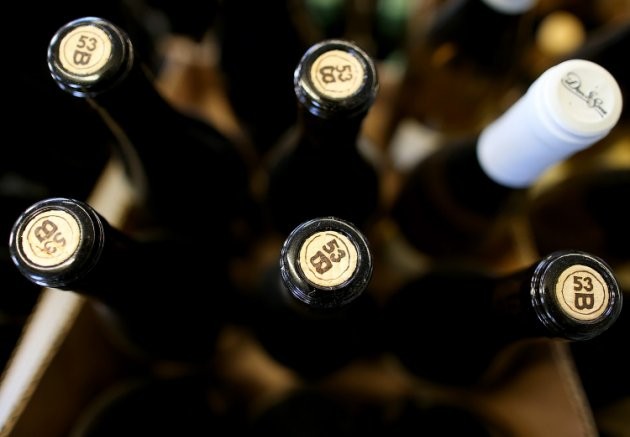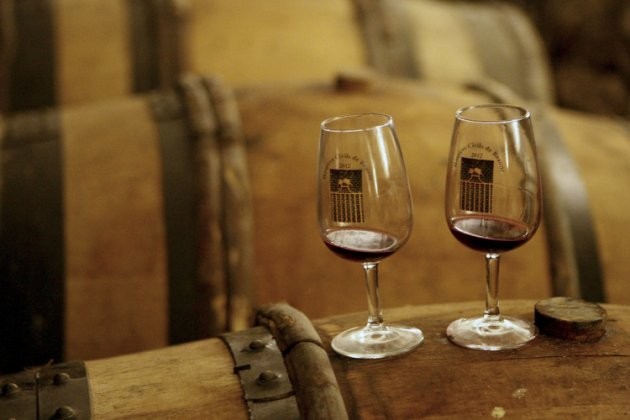Investing in fine wine Metropolitan Police Service
Post on: 16 Март, 2015 No Comment

Investing in Fine Wine: dont be a victim of fraud
The following advice has been issued by Operation Sterling in conjunction with our partners at the Wine and Spirits Trade Association. Similar principles apply to other commodity investments.
Fine wines can make a good, relatively low risk long-term investment. However as with all types of business, there are rogue wine traders who are intent on conning people out of their money. Whether you are a wine enthusiast starting your own fine wine collection or someone looking to build up an investment portfolio, this guide provides some tips on how to protect yourself from becoming a victim of wine fraud.
Choose a reputable wine merchant
Before you commit to an investment, make sure you are dealing with an honest, reputable business with a successful track record in the trade. When buying wine before it is bottled and released to the market- referred to as en primeur — it is especially important to deal with a reputable company. Given en primeur wine is usually delivered 2-3 years after the vintage, it can be particularly open to exploitation by fraudsters.
Trading history and expertise. Find out if the business is profitable, well-established, who the directors are and what experience they have in fine wines. Established UK companies will be registered with Companies House, where you can also check their balance sheet.
Contact details. Ensure that the company has a valid head office address. Consider using Google street view to check its location. Be wary of PO Box addresses and mobile contact numbers only.
Unsolicited offers. Honest as well as fraudulent businesses can use cold calling or direct mail-outs to reach new customers. However take particular care to check the credentials of companies who approach you with unsolicited offers.
Know exactly what you are buying
Before parting with your money, you need to understand exactly what wine you are purchasing and that you are making a sound investment. Remember only specific wines will tend to accrue value and these wines tend to be expensive.
- Do your research. Make sure that you are buying the right wines at the correct, competitive prices. The internet is a good way of comparing prices. If necessary, seek another opinion on whether you are making a sound investment.
- Provenance and quality. This is crucial to the value of your investment. Make sure you know the provenance of the wine you are buying- that it comes from a reliable origin.
- Condition. Gather details about anything which may affect the value of your purchase. For example, fine wine should be in unmixed, sealed cases in the original wooden box. It should not have been repackaged in any way .
- En primeur prices. Do not buy en primeur in advance of the prices being published. Reliable traders will not try to sell you en primeur before the producers have announced their release prices.
- Availability. Ask whether the merchant has the wine already in stock or whether it will have to be ordered from the producer. Be clear about when your wine will be delivered or transferred into your account.

Look after your investment
How you store and manage your wine investment is crucial to its future value. Whilst you can keep fine wines in your own cellar, wine bought for investment is usually stored professionally, either in your own warehouse account or in a merchants customer reserves.
‘Duty paid’ or ‘in bond’. Wine for investment is usually held ‘in bond’, meaning that it is free from UK excise duty and VAT while it remains there. Only when the wine is removed from bond are these taxes paid.
- Access. Wine held in your own account gives you complete control over it. If you are storing wine in a merchants customer reserves, ensure these are clearly identified, stored separately from the companys own stock and will not be moved without your agreement.
- Insurance. Your wine should be insured to at least to the value of the original purchase price. Be clear as to whether you will get a refund from your merchant if a producer fails to supply the wine as arranged.
- Correct storage facilities. Your wine must be stored in a secure warehouse with appropriate temperature and humidity levels.
- Understand the small print
Make sure you are clear what commission, charges and additional taxes you will have to pay on your fine wine investment.
- Tax. Profits from wine investment are not necessarily tax free. For Inheritance Tax purposes, wine will be valued at the current open market value. Depending on circumstances, fine wines may also attract Capital Gains Tax. You may need to consider taking expert tax advice.
- Commission. Know what commission will be charged by the wine merchant, including any portfolio management fees. You may still be charged commission to sell your wine, even if the company you bought
- Storage and handling fees. To store your wine in a bonded warehouse, you will usually be charged an annual fee. You may also be charged shipping and handling fees. Paperwork. Understand what invoices, regular statements and stock certificates you will receive from the company, to ensure that you can prove your entitlement to the wine that you have paid for.
- Valuations. Make sure you have the option of having your wine valued at a future date. Independent valuations can be obtained from a number of sources.
- Dont fall for hard sales tactics Beware of companies that use aggressive sales tactics or make unrealistic-sounding claims about the returns you could expect to see on your wines. As always, if an offer seems too good to be true, it usually is.
- Guaranteed profit. A reputable wine merchant will not make claims of guaranteed returns. Like all forms of investment, the value of your wine can go down as well as up.
- Fast returns. Be wary of claims of fast returns on your purchase. You should usually view fine wine as a medium to long-term investment.
- Take your time. Do not let yourself be rushed into making a commitment. A genuine offer is unlikely to require an instant decision.
Buying fine wines: A checklist; what do you know about the company?
- Do they have a good reputation?
- How long have they been in business?
- Where are they based?
- Are their prices competitive?
- What is the provenance of the wine?
- How much are commission, storage or delivery charges?
- Will your wine be stored separately from the companys wine?
- What documents will you get to provide proof of purchase?
- Is your wine insured?














